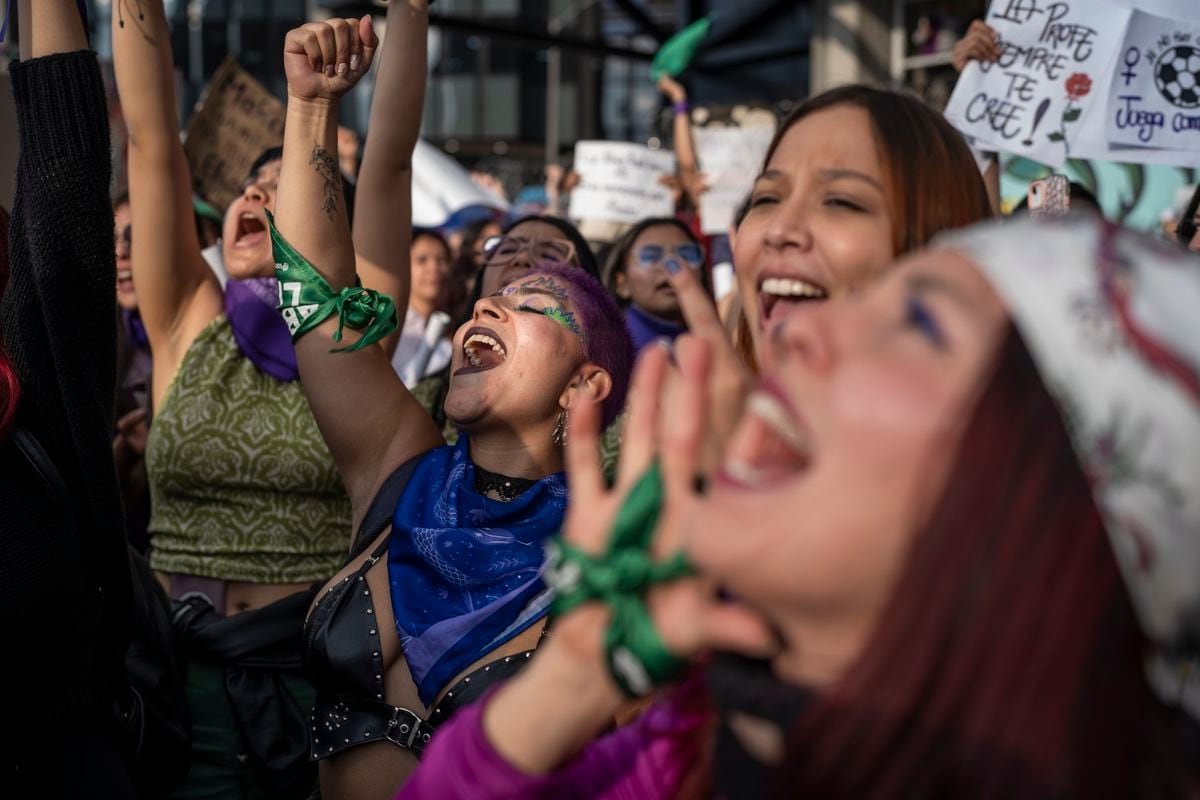EL PAÍS offers the América Futura section openly for its informative, daily and global contribution on sustainable development.
If you want to support our journalism, subscribe
here
.
In recent decades, Latin America and the Caribbean has made progress in terms of gender equality, but today's complicated economic, social, political and environmental situations are causing setbacks for the rights of women, adolescents and girls.
Given this situation, it is essential that we develop new strategic alliances and establish agreements that focus on financing and investing resources to achieve the autonomy and empowerment of women, adolescents and girls.
According to UN Women, an additional $360 billion per year is needed globally to achieve gender equality and women's empowerment agreed in the 2030 Sustainable Development Goals.
It is important to analyze why gender-responsive financing is so essential to achieving equality.
Women face structural inequalities in access to resources, opportunities and rights, due to gender roles and stereotypes that are replicated in social, cultural and political practices.
The gender perspective identifies and addresses these barriers and allows financial resources to be allocated to women and men on equal terms, seeking to “level the playing field” in those areas where women have historically been left behind, such as political participation or access to decent employment;
or very affected, as in sexist violence and overload in care tasks.
This is one of the objectives of the Commission on the Legal and Social Status of Women (CSW), the most important event that, since this Monday, brings together senior representatives of Governments, the UN and NGOs to review the progress and setbacks in the Agenda. Gender and influence the development of policies, actions and strategies in favor of the rights of women, adolescents and girls in all their diversity.
It is a key space that this year holds its 68th session in New York.
The meeting will emphasize the urgency of overcoming four structural nodes of gender inequality: socioeconomic inequality and the persistence of poverty;
discriminatory and violent patriarchal cultural patterns and the predominance of the culture of privilege;
the sexual division of labor and the unjust social organization of care;
and the concentration of power and hierarchical relations in the public sphere
.
On average, Latin America and the Caribbean is the region with the highest presence of women in national legislatures, only behind the Nordic countries.
But this achievement hides great disparities: countries with equal legislatures coexist with others where female representation is less than 20%.
Where numerous policies and legislations that will affect the lives of millions of women are debated, proposed and decided, their voices are underrepresented and, therefore, their specific needs are poorly identified, little heard and poorly attended to.
On the other hand, although the majority of Latin American and Caribbean countries have legislation that recognizes, punishes and prevents gender-based violence, it is also a reality that 14 of the 25 countries with the highest rates of feminicide in the world are found in this region.
Given these problems, this year we must accelerate equality and the empowerment of women, addressing poverty and strengthening institutions and financing with a gender perspective.
Financing is an area in which CAF - development bank of Latin America and the Caribbean - focuses our efforts through projects, technical assistance and impact investments.
Our gender equality strategy supports countries in the region to design public equality policies and incorporates the gender perspective into our operations to ensure that women, in all their diversity, participate and benefit under equal conditions and opportunities. of investments for the development of the countries and the various territories of the region.
As an observer organization of the CSW, CAF participates for the first time in this event and reinforces its commitment to human rights and the sustainable and inclusive development of the region, having the firm certainty that dialogue, articulated work and strategic investment are the key to achieving equality.
Ana Baiardi
is Manager of Gender, Inclusion and Diversity at CAF-development bank of Latin America and the Caribbean.

